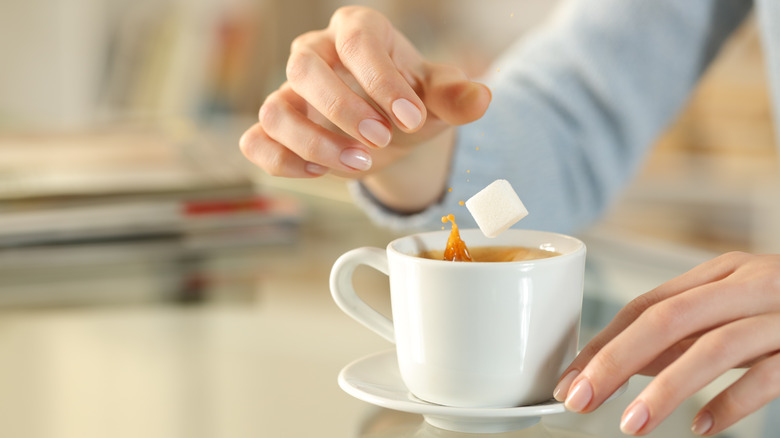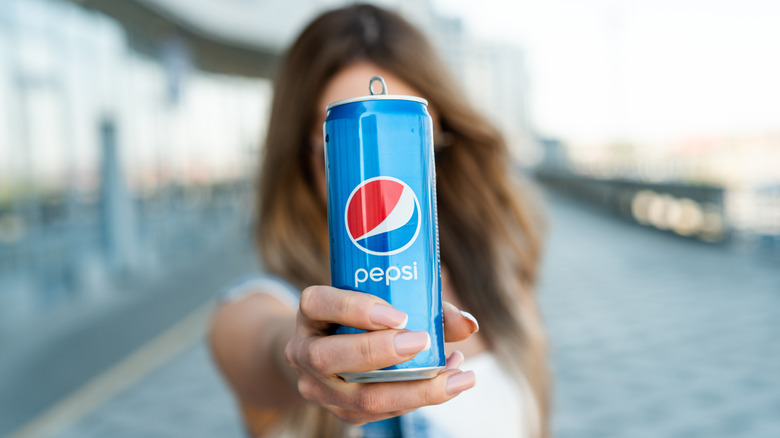The Big Difference Between Sugar And Caffeine
Sugar and caffeine are two ingredients that offer a similar end result: energy. If these both give us energy, do they work the same? Not really. Caffeine is a stimulant that targets your central nervous system (via How Stuff Works). It binds to the adenosine receptors in your brain and keeps adenosine from performing its regular function, which is to slow down nerve cells to make you feel drowsy and sleepy. When caffeine binds to those receptors, the nerve cells speed up instead. That gives you the boost of energy you feel after drinking a cup of coffee or energy drink. However, although you feel more energized, caffeine does not actually provide you with energy.
This is where sugar comes in. Sugar is absorbed in the blood and used as energy throughout the body (via Inside Science). Many foods are broken down into sugars when they are digested, which is why eating gives us sustained energy throughout the day. While sugar won't give you a boost of energy like caffeine, it will give your body fuel to burn to keep you energized for longer periods of time.
Are sugar and caffeine bad for you?
Both sugar and caffeine offer some benefits but can be harmful when consumed in excess. While natural sugar found in whole foods can provide you with sustained energy, processed sugar contributes to a variety of health issues. According to Eat This, Not That!, our bodies don't do well when given huge doses of refined sugar at once, causing side effects like nausea and digestive issues. "Too much white sugar won't help you if you're trying to promote healthy bacteria in your system," said Brigitte Zeitlin, MPH, RD, CDN. A diet high in sugar has been linked to joint pain, weight gain, bloating, high blood pressure, and decreased motivation.
Caffeine, in general, is a little better for you than sugar. A moderate intake of this stimulant is considered to be safe by the Food and Drug Administration (FDA) as long as you stay within the recommended daily intake of 400 milligrams per day (Medical News Today). Too much caffeine can worsen symptoms of anxiety and depression, increase blood pressure, and cause issues with the heart.


